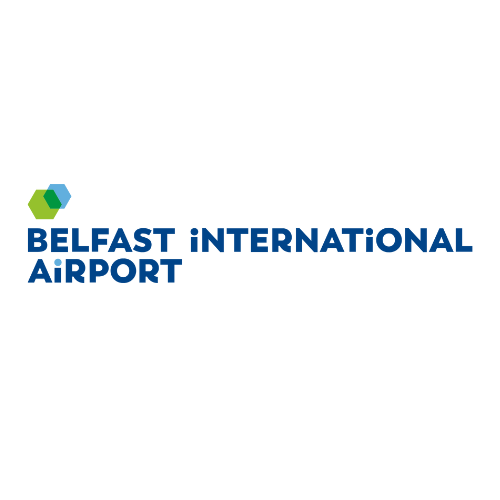Global demand for air travel has been growing for 36 consecutive months, with 88% of travellers surveyed by the International Air Transport Association (IATA) stating that air travel makes their lives better. As a result, airports face increased pressure to enhance the passenger experience while also streamlining operations and keeping costs low.
One effective approach is adopting Business Intelligence (BI) and AI solutions, complemented by data observability. These tools help you analyse data, gain insights, and make better decisions. We explore why airports should adopt BI, how it can improve infrastructure, drive digital services, and its impact on revenue management.
Why your airport should adopt Business Intelligence
Business Intelligence has enabled many industries to use data to make strategic decisions that impact an array of operations. It helps retail stores understand what customers want and manage stock better. Financial services use BI to detect fraud, assess risks, and personalise client offerings. In manufacturing, it helps optimise production processes and reduce waste.
Airports can use BI tools to impact passenger services, operations, and revenue. By adopting BI, you can:
Improve data management: Effective data management is the backbone of any successful BI implementation. With data coming in from various sources, it can be challenging to consolidate and analyse it. Data observability tools ensure the accuracy, completeness, and reliability of the data fed into BI systems. BI solutions can help your airport manage and organise your data, allowing you to make informed decisions quickly, across all your teams.
Gain better insights: BI tools enable airports to gain deep insights into operations, including passenger traffic, flight schedules, and resource allocation. Data observability enhances these insights by ensuring up-to-date and accurate data. With this information, you can make real-time decisions and analyse trends to optimise operations, identify bottlenecks, and reduce wait times.
Enhance customer experience: Understanding passenger behaviour is fundamental to improving the customer experience. BI solutions can help analyse feedback, airport media interactions, and other data to identify areas for improvement. Integrating data observability into BI ensures that the data used for personalising services is reliable and accurate.
Infrastructure improvements rely on Business Intelligence
Airports need efficient infrastructure to run smoothly. BI solutions play a key role by optimising how resources are used, monitoring equipment and infrastructure, and providing real-time updates on activities. Integrating data observability enhances these capabilities by ensuring the data used is accurate, complete, and reliable.
BI solutions can make sure your airport uses resources like staff, equipment, and facilities more effectively, avoiding waste and cutting costs. They can also help airports monitor equipment and infrastructure to identify issues before they become critical. With real-time monitoring and data observability, airports can quickly address problems, preventing delays and improving passenger satisfaction. This proactive approach can prevent bottlenecks and increase passenger satisfaction.
Driving digital services with Big Data analytics
The 2023 Airport IT Insights Survey reported that 90% of airports plan to invest in BI for asset management and flight operations by 2026. Airports need to adopt BI to remain competitive, and Rezcomm’s Commercial BI, data observability, and AI solutions can help airports drive digital services by using several different techniques. Here are a few examples:
Personalisation: Airports can understand passenger preferences and provide personalised services. This can include customised promotions for their parking, targeted advertising based on their flight search, and personalised touchpoints throughout their passenger journey from before, during, and after their flight.
Data-driven decision-making: BI solutions can help airports make data-driven decisions to improve operations and services. By understanding passenger behaviour, airports can tailor their services to meet their needs. For example, if you know a passenger likes a certain brand of coffee (having bought it before at your airport), you can offer a discount on their next purchase and encourage footfall to your retail partners.
Predictive analytics: BI solutions can help airports predict passenger demand, allowing them to adjust resources and staffing accordingly. This can help avoid overcrowding and long wait times inside the airport and significantly enhance your parking solutions outside.
Optimising revenue management with Business Intelligence
Effective revenue management requires accurate data and timely insights. BI solutions enhance revenue management by analysing various revenue streams and identifying opportunities for growth. By using BI, airports can better understand passenger spending patterns, optimise pricing strategies, and forecast demand.
Integrating data observability into BI solutions enhances revenue management further. Observability tools ensure the accuracy and reliability of financial data, maintaining governance and compliance with industry standards. This results in financial insights that are both precise and trustworthy, allowing airports to make informed decisions that boost revenue.
By combining BI with data observability, airports can proactively address issues and optimise revenue strategies effectively.
1. Identifying revenue opportunities
BI solutions can help airports identify revenue opportunities, such as optimising retail space or identifying underused services. Machine Learning models and algorithms available in our AI modules enable the discovery of significant patterns, allowing your airport to leverage predictive network structures and identify opportunities for additional revenue income streams.
2. Forecasting revenue
BI solutions can help airports forecast revenue based on passenger traffic, flight schedules, and other factors. This allows you to plan accordingly and make informed decisions. Rezcomm’s Customer AI insights module offers insights into customer behaviour across all touchpoints for a comprehensive understanding of customer preferences and needs. The module provides advanced segmentation capabilities, enabling businesses to group customers based on criteria like demographics, behaviour, and preferences and forecast their spend.
3. Analysing pricing strategies
BI solutions can help airports analyse pricing strategies to maximise revenue. By understanding passenger behaviour, airports can adjust pricing and promotions to increase revenue.
For example, Rezcomm can use AI analysis to strengthen your parking solutions. By analysing data from various sources such as occupancy levels, weather conditions, events, and other parameters, the AI-driven system accurately forecasts future parking demand and provides precise pricing strategies and availability forecasts.
Adopt Business Intelligence and boost airport operations with Rezcomm
BI, data observability, and AI tools have the potential to transform the way airports operate. By adopting these solutions, you can improve data management, gain better insights, enhance customer experience, and optimise infrastructure. Get in touch to discover how Rezcomm’s Commercial BI, data observability, and AI solutions can drive powerful digital services and revenue for your airport.




























